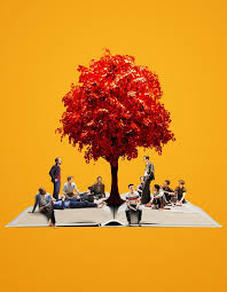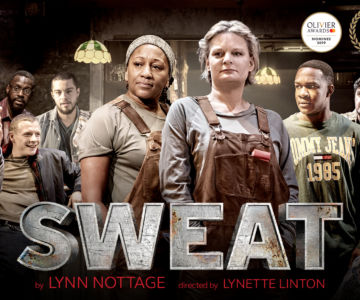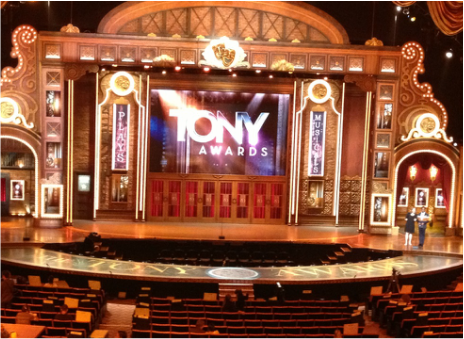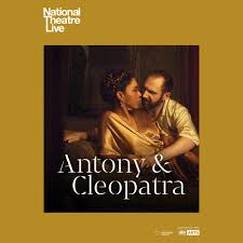 The Best Vegan Restaurant in London: Club Mexicana at Spread Eagle Pubby Randi / December 17, 2018
The Best Vegan Restaurant in London: Club Mexicana at Spread Eagle Pubby Randi / December 17, 2018It’s Theatre Thursday! Today’s show is The Inheritance, Part 1, which has transferred from the Young Vic to the West End’s Noel Coward Theatre, playing there until January 19.
I have put off seeing The Inheritance for actual years now. It’s not that I didn’t want to see it, but Matthew Lopez’s two-part, sweeping look at today’s culture of gay men, and how they grapple with their position in life compared to the generation that came before them and paved the way, is…long. It’s really long. And it’s in two parts, so you have to go back to the theatre another night to finish the story. And I got things to do! So I put it off. If I’m going to sit through two plays at nearly four hours each, I said to myself, about gay men and AIDs and stuff, I’m going to see Angels in America. (It might sound pretty narrow-minded to compare to the two works, like ‘oh they’re both about gay men so you’re going to compare them, you bigot’ but please, tell me of another eight-hour play in two parts, I’ll wait.) Also, the hype was ludicrous. I assumed there was no way this is ‘the best play of the year, and of next year too, probably’, to quote a mainstream critic (one of those). But I finally decided to bite the bullet and start this epic journey into hours and hours of theatre, and you know what? It’s probably the best play of the year, and of next year too.
I have put off seeing The Inheritance for actual years now. It’s not that I didn’t want to see it, but Matthew Lopez’s two-part, sweeping look at today’s culture of gay men, and how they grapple with their position in life compared to the generation that came before them and paved the way, is…long. It’s really long. And it’s in two parts, so you have to go back to the theatre another night to finish the story. And I got things to do! So I put it off. If I’m going to sit through two plays at nearly four hours each, I said to myself, about gay men and AIDs and stuff, I’m going to see Angels in America. (It might sound pretty narrow-minded to compare to the two works, like ‘oh they’re both about gay men so you’re going to compare them, you bigot’ but please, tell me of another eight-hour play in two parts, I’ll wait.) Also, the hype was ludicrous. I assumed there was no way this is ‘the best play of the year, and of next year too, probably’, to quote a mainstream critic (one of those). But I finally decided to bite the bullet and start this epic journey into hours and hours of theatre, and you know what? It’s probably the best play of the year, and of next year too.
Granted, I have only seen Part 1 so far. You can see both parts in one day if you want, but ain’t nobody got time for that. (Or energy. How do the actors do it? are they spidermen?) I’m really glad I scheduled this extra time in between so I can sit with and think about Part 1 and give it the due it deserves. As a standalone play, Part 1 was sensational, and I’m honestly wowed. I really can’t believe that I would be willing to see it again. For the first time in my life, I bought the script of the play instead of the programme. It’s that good. I made a sort-of joke about Angels in America above, but The Inheritance is truly the clear successor to Angels, not just because they are about the same demographic, but – and gird your loins, people who hate tautologies – because it is a successor to Angels. That’s what it’s about – what gay men living today have inherited from the generation before and what they have to do to honor their memory and their sacrifice. So REALLY, it’s like a four-part 16 hour play. Just kidding. But it’s important to know where gay men of the previous generation have been in order to understand what these gay men of our generation are thinking about when they think about honoring those who came before them. Both plays bear crucial witness to the gay culture of their time.
The idea of honoring the past without getting trapped by it runs through all the multiple layers and character arcs in this play. Not only are there so many vibrant layers to the story that all seem compelling in their own right, there’s also an homage to the novel Howards End woven into the frame of the show. It begins with a group of male writing students bouncing ideas off of each other, guided by their teacher Morgan, a representation of Howards End author E.M. Forster (the M was for Morgan), who hid his homosexuality from the public (his famous works about homosexual themes were published after his death). Morgan and the students brainstorm ways to start the story, eventually focusing on one student’s idea and snowballing. As an opening gimmick, this kind of annoyed me at first, but it really does pay off. We delve into the story and just when you forget that it’s anything but real, it returns to Morgan leading the writing process.
The story being written tells of Eric Glass (Kyle Soller, wonderful) and Toby Darling (Andrew Burnap, my choice for a supporting actor Olivier), a gay couple living in New York in Eric’s Holocaust-surviving grandparents’ great apartment. If you take that central idea and think of it like a small glass sphere, the play is like taking a hammer to that glass and watching all the thousands of shards shower away from it. There is so much happening and it all is part of the same whole, all kinds of side stories you think maybe should have been cut for time, until you realize they are all necessary to add to this realistic, vivid world they’re creating onstage. Eric is an actually decent guy, the kind you root for even without knowing him too well. He’s a better person than he believes himself to be, a sensitive, thoughtful soul. Toby is vivacious, hilarious, and altogether Too Much. He’s written a well-known book that is getting transformed into a Broadway play, because his head needs to get bigger. A chance meeting with a younger gay man, Adam (Samuel Levine, responsible for the ‘male nudity’ warning), throws a wrench into Eric and Toby’s happy life together, especially when Adam is cast in Toby’s play.
While Adam and Toby workshop the play out of town, Eric befriends Walter, an older gay man who was previously an acquaintance but becomes one of the most important people in Eric’s life. Walter lived through the ‘80s AIDs epidemic and tells Eric, in probably the longest (and most moving) monologue in theatre history, what it was like. And not just ‘what it was like’ like ‘oh, it was awful,’ but opening up and really showing the history to Eric like it’s a tangible thing you can hold and show someone. In a brilliant move, Walter is played by the same actor as Morgan (Paul Hilton), guiding the young men and helping them as much as he can. At the end of Act 1, Walter explains to Eric that his partner, the billionaire Henry Wilcox (John Benjamin Hickey, one of my faves), wanted to run away from the city during the epidemic and ignore it, along with their friends. But Walter in his kindness and empathy couldn’t, and so while Henry traveled, Walter opened up their country house to let their friends, and friends of friends and whoever needed to, have a serene place to die.
Walter’s friendship, guidance, and memories clearly make Eric even more thoughtful and considerate of (to quote another of this year’s ‘best of’(TV Edition)) what we owe to each other, and what we owe to the past and to the future. The inheritance of the title is that recognition of the importance of memory and respect in the culture. In a whole new layer to the story, it also refers to a Howards-End inspired deathbed bequeathment of important property that, like in its source material, gets infuriatingly disregarded. And as part of that property, it refers to the responsibility that these young gay men have inherited from the previous generation, the responsibility that every demographic or culture or race owes to their forebears: to recognize their struggles and understand what they went through so that you can live the life you’re living and make things better for the next group.
I know, it sounds like a lot of heavy material. And it is, and you’ll forking SOB, especially at the final scene of Part 1. Or, if you’re like me, you’ll save your hardest cries for what’s supposed to be a kind of funny moment – Eric’s friends’ 2016 Election Returns Watch Party (sigh (too real)). But you also laugh a whole lot, especially at Toby’s lines and his incredible physicality. It’s like he’s dancing through his character’s lines while fully becoming him and it is incredible. The ensemble is wonderful, and even though most have not much to say in Part 1, the cast remains onstage the entire time. Stephen Daldry’s direction has truly never been cleverer or sharper. It’s his best work yet. There is absolutely no set, other than a raised platform in the middle. No painted backdrops, no nothing. There are barely any props (save for the frequent wine glasses, the odd chair, the Hillary balloon). Yet the stage pulsates with life. The ensemble sits around the platform and watches the action, sometimes chiming in with suggestions to the author (reminding you of the framing device, which I still don’t know how I feel about). Most importantly, the ensemble moves with the story in a way I have never seen before. When you react internally to a line reading, the ensemble will react physically in a way that makes complete sense. They seem to be constantly moving but not in a distracting way, rather in a totally natural, necessary way that adds to the import of every scene. It’s like a reminder of something, maybe that your actions affect lives around you, or that you’re never alone.
Going into Part 2, I’m eager to see more of John Benjamin Hickey’s Wilcox, who was only in Part 1 for a portion of the time, and of course I’m excited for the ‘cameo’ by Vanessa Redgrave. But even more than seeing these stars, I can’t wait to get back into this world. I’m honestly still shook by the story and anxious about where things left off. This play felt like a long book that becomes important to you as you read along, the kind where you feel it in your soul and worry about the story and the characters for life, even though you know it’s not real. That the Inheritance Part 1 accomplished that is a testament to the genius of Matthew Lopez, as well as the pitch-perfect direction and the great acting that brought me fully into their world.
INFORMATION
The Inheritance ends its run at the Noel Coward Theatre on January 19 so hurry, or wait to see it on Broadway because it is definitely going.
Tickets are pretty easy to get, especially using TodayTix (which runs their rush ticket system). I got a £15 ticket (talk about value for money) in the Royal Circle, fifth row in and on the right side of center, and it was a perfect view. Too far to the extreme sides will be okay but a little restricted. The audience was pretty good, but actually the staff was awful. I could hear them talking in the lobby really loudly, proving my opinion that Delfont Mackintosh theatres and staff have to undergo a whole rehaul.
The idea of honoring the past without getting trapped by it runs through all the multiple layers and character arcs in this play. Not only are there so many vibrant layers to the story that all seem compelling in their own right, there’s also an homage to the novel Howards End woven into the frame of the show. It begins with a group of male writing students bouncing ideas off of each other, guided by their teacher Morgan, a representation of Howards End author E.M. Forster (the M was for Morgan), who hid his homosexuality from the public (his famous works about homosexual themes were published after his death). Morgan and the students brainstorm ways to start the story, eventually focusing on one student’s idea and snowballing. As an opening gimmick, this kind of annoyed me at first, but it really does pay off. We delve into the story and just when you forget that it’s anything but real, it returns to Morgan leading the writing process.
The story being written tells of Eric Glass (Kyle Soller, wonderful) and Toby Darling (Andrew Burnap, my choice for a supporting actor Olivier), a gay couple living in New York in Eric’s Holocaust-surviving grandparents’ great apartment. If you take that central idea and think of it like a small glass sphere, the play is like taking a hammer to that glass and watching all the thousands of shards shower away from it. There is so much happening and it all is part of the same whole, all kinds of side stories you think maybe should have been cut for time, until you realize they are all necessary to add to this realistic, vivid world they’re creating onstage. Eric is an actually decent guy, the kind you root for even without knowing him too well. He’s a better person than he believes himself to be, a sensitive, thoughtful soul. Toby is vivacious, hilarious, and altogether Too Much. He’s written a well-known book that is getting transformed into a Broadway play, because his head needs to get bigger. A chance meeting with a younger gay man, Adam (Samuel Levine, responsible for the ‘male nudity’ warning), throws a wrench into Eric and Toby’s happy life together, especially when Adam is cast in Toby’s play.
While Adam and Toby workshop the play out of town, Eric befriends Walter, an older gay man who was previously an acquaintance but becomes one of the most important people in Eric’s life. Walter lived through the ‘80s AIDs epidemic and tells Eric, in probably the longest (and most moving) monologue in theatre history, what it was like. And not just ‘what it was like’ like ‘oh, it was awful,’ but opening up and really showing the history to Eric like it’s a tangible thing you can hold and show someone. In a brilliant move, Walter is played by the same actor as Morgan (Paul Hilton), guiding the young men and helping them as much as he can. At the end of Act 1, Walter explains to Eric that his partner, the billionaire Henry Wilcox (John Benjamin Hickey, one of my faves), wanted to run away from the city during the epidemic and ignore it, along with their friends. But Walter in his kindness and empathy couldn’t, and so while Henry traveled, Walter opened up their country house to let their friends, and friends of friends and whoever needed to, have a serene place to die.
Walter’s friendship, guidance, and memories clearly make Eric even more thoughtful and considerate of (to quote another of this year’s ‘best of’(TV Edition)) what we owe to each other, and what we owe to the past and to the future. The inheritance of the title is that recognition of the importance of memory and respect in the culture. In a whole new layer to the story, it also refers to a Howards-End inspired deathbed bequeathment of important property that, like in its source material, gets infuriatingly disregarded. And as part of that property, it refers to the responsibility that these young gay men have inherited from the previous generation, the responsibility that every demographic or culture or race owes to their forebears: to recognize their struggles and understand what they went through so that you can live the life you’re living and make things better for the next group.
I know, it sounds like a lot of heavy material. And it is, and you’ll forking SOB, especially at the final scene of Part 1. Or, if you’re like me, you’ll save your hardest cries for what’s supposed to be a kind of funny moment – Eric’s friends’ 2016 Election Returns Watch Party (sigh (too real)). But you also laugh a whole lot, especially at Toby’s lines and his incredible physicality. It’s like he’s dancing through his character’s lines while fully becoming him and it is incredible. The ensemble is wonderful, and even though most have not much to say in Part 1, the cast remains onstage the entire time. Stephen Daldry’s direction has truly never been cleverer or sharper. It’s his best work yet. There is absolutely no set, other than a raised platform in the middle. No painted backdrops, no nothing. There are barely any props (save for the frequent wine glasses, the odd chair, the Hillary balloon). Yet the stage pulsates with life. The ensemble sits around the platform and watches the action, sometimes chiming in with suggestions to the author (reminding you of the framing device, which I still don’t know how I feel about). Most importantly, the ensemble moves with the story in a way I have never seen before. When you react internally to a line reading, the ensemble will react physically in a way that makes complete sense. They seem to be constantly moving but not in a distracting way, rather in a totally natural, necessary way that adds to the import of every scene. It’s like a reminder of something, maybe that your actions affect lives around you, or that you’re never alone.
Going into Part 2, I’m eager to see more of John Benjamin Hickey’s Wilcox, who was only in Part 1 for a portion of the time, and of course I’m excited for the ‘cameo’ by Vanessa Redgrave. But even more than seeing these stars, I can’t wait to get back into this world. I’m honestly still shook by the story and anxious about where things left off. This play felt like a long book that becomes important to you as you read along, the kind where you feel it in your soul and worry about the story and the characters for life, even though you know it’s not real. That the Inheritance Part 1 accomplished that is a testament to the genius of Matthew Lopez, as well as the pitch-perfect direction and the great acting that brought me fully into their world.
INFORMATION
The Inheritance ends its run at the Noel Coward Theatre on January 19 so hurry, or wait to see it on Broadway because it is definitely going.
Tickets are pretty easy to get, especially using TodayTix (which runs their rush ticket system). I got a £15 ticket (talk about value for money) in the Royal Circle, fifth row in and on the right side of center, and it was a perfect view. Too far to the extreme sides will be okay but a little restricted. The audience was pretty good, but actually the staff was awful. I could hear them talking in the lobby really loudly, proving my opinion that Delfont Mackintosh theatres and staff have to undergo a whole rehaul.






